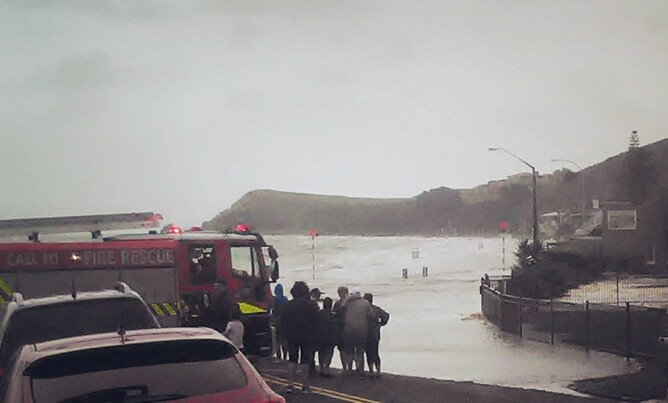January, in health promotion in the community it's a time of reporting for contracts, getting ready for return to normal work in 2024, writing draft budgets for the end of the financial year, and for us it's been a flurry of recruiting activity for our newest team member. It's busy, but also on the list is the ongoing review of the important things that help underpin our organisation and how we work.
This month, on the schedule, is a review of the question of where do we sit as an organisation in terms of environment and climate change. The World Health Organisation has stated that "climate change is a fundamental threat to human health". They note that climate change is occurring faster than anticipated, and they further identify that the health impacts of climate change fall more on the most vulnerable, making it a significant equity issue, more on that here.
So what can a small organisation working in health in the community do to make sure they aren't part of the problem? A visit to the Climate Action Toolbox is in order. This is something that is well worth doing on a regular basis as we've found the tools in the Toolbox challenge us to think about what we are doing and what we can do differently. This is essential as a business working in the area of Public Health where the environment is recognised as being fundamental to wellbeing, we need to make sure we at the very least aren't making climate change worse, at best, we can confirm we are working towards improvement.
In terms of 'what' we do, we do have a head start with the Gardens4Health programme. Gardens4Health helps communities set up and maintain community food gardens. This encourages the increased consumption of locally produced fruits and vegetables, preferably grown without harmful chemical and farming practices. This doesn't just benefit people's physical health and their wallets, but also has environmental implications on a number of levels. This includes lower transport/production emissions, providing a secure and sustainable food source, promoting healthier soil with gardens acting as 'water sinks' where there are rain events, and also food waste is taken out of landfill and returned to the growing cycle through composting.
In addition, we can confirm that what we teach and demonstrate in our other activities also support the messages of sustainable, safe and healthy eating with increased consumption of plant based food as recommended by current guidelines, national and international.
In terms of the 'how' we do things, so far this year, using the Climate Action Toolbox, we've audited our transport and office practice. There is quite a substantial list of things that can potentially be changed, but for a small organisation it's about taking smaller, feasible 'bites' at a big job. There are some things we can do immediately for the transport category for example, like review our work travel practices and make sure our online meeting arrangements are up to scratch, but we can't all reach for an E-vehicle as suggested at the moment! In the office we can do things like check the light-bulbs are low energy, remind people to turn lights off and unplug items not in use, review how we use paper, and update our buying policy for more sustainable practice, among many other practical suggestions.
So at the start of 2024, we've continued our commitment to being a more environmentally sustainable organisation. For other community organisations we'd recommend the Climate Action Toolbox as a great starting point with it's self audit tool and useful ideas.


